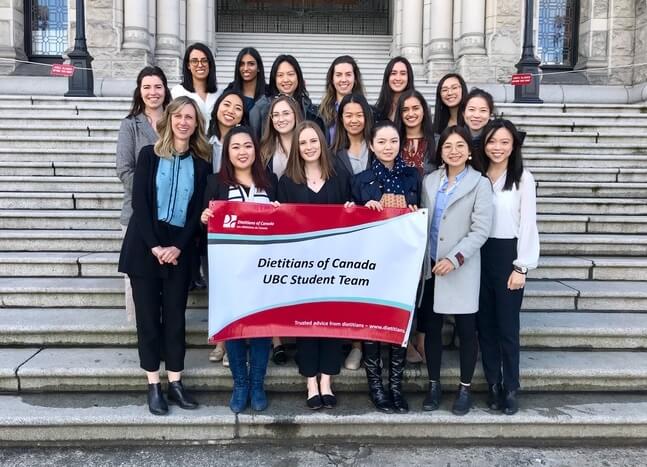All Categories
Featured
Table of Contents
-1
In the United States and numerous other nations, a dietitian is a board-certified food and nourishment specialist. They are very informed in the field of nutrition and dietetics the science of food, nutrition, and their effect on human wellness. Through comprehensive training, dietitians acquire the proficiency to supply evidence-based medical nutrition treatment and nutritional therapy customized to fulfill an individual's demands.
-1To clear up, the qualifications of RD and RDN are interchangeable. Nonetheless, RDN is an extra current classification. Dietitians can pick which credential they prefer to use. To earn these credentials dietitians-to-be must first earn a bachelor's degree or equal credit ratings from a certified program at an university or college. Normally, this needs an undergraduate scientific research degree, consisting of courses in biology, microbiology, natural and inorganic chemistry, biochemistry and biology, composition, and physiology, in addition to even more customized nutrition coursework.
Pregnancy Dietitian – Neerabup
-1This enables them to examine intense needs, focusing on deadly problems. Inpatient and outpatient dietitians additionally give nourishment education to people with specialized requirements, such as those recently out of surgical treatment, in cancer treatment, or identified with chronic illnesses like diabetic issues or kidney illness. In the outpatient setup, they offer much more thorough nutritional therapy working towards a nutrition-oriented goal.
-1Study dietitians usually function in study medical facilities, companies, or universities. As soon as dietitians have actually earned their credentials and are functioning in the field, they can go on to specialize in a particular subcategory, such as pediatrics or sporting activities dietetics.
-1They might furthermore educate in an academic or research study institution or blog about nutrition-related subjects. Others might function as health and nourishment experts in media or as speakers. Dietitians are qualified to take care of nutrition treatment throughout a span of severe and chronic problems. The type of problems they deal with depends most on the setting of their method.
Sports Nutritionist – Wanneroo
-1In numerous states, such as Alaska, Florida, Illinois, Maryland, Massachusetts, and Pennsylvania, RDs and CNSs are granted the same state license, typically called a Licensed Dietitian Nutritional Expert (LDN) permit. In states that do not control the use of this term, any person with a rate of interest in diet plan or nourishment might call themselves a nutritional expert.
-1Because uncredentialed nutritionists typically do not have the experience and training for clinical nutrition treatment and nutrition counseling, following their recommendations might be considered damaging (). Before consulting a nutritionist, you might intend to examine whether your state regulates who may use this title. In the united state states that do not control the term, no levels or qualifications are required to be a nutritionist.

-1
In states that do mandate licensure, the CNS or RD credential may called for. Those with CNS qualifications are health and wellness professionals like registered nurses or doctors with sophisticated health degrees that have looked for additional coursework, finished monitored practice hours, and passed an examination overseen by the Board for Qualification of Nutrition Specialists.
-1While several of these approaches may have durable clinical backing, others may not. Providing nutrition suggestions without the proper knowledge and training can be unsafe, particularly when counseling those with health and wellness conditions. Because of this, if you are considering getting in touch with a nutritional expert, you might wish to ask if they are a CNS or have state licensure or certification, or an additional credential.
Herbal Nutritionist
-1Numerous states especially manage this term. In addition, nutritional experts might pursue a sophisticated CNS qualification.
-1It can be challenging to aid people make authentic, long-term changes in their lives. When you get a successful case, the benefit can be immensely satisfying. If it's a career alternative that you desire to seek, there are 2 major profession alternatives offered to you. Both dietitians and nutritionists provide a range of nutrition-based services to customers.
-1They should have finished some degree of education and learning in their field. They are likewise called for to have completed approximately a year of monitored work, working within an assisted program at a medical care center, providing organization, or community body. Dietitians have far higher expectations placed on their capacities and level of expertise.
-1This implies that there is no body that oversees their qualifications and no particularly rigorous guidelines that nutritionists demand to adhere to in order to be able to exercise. Dietitians, on the various other hand, are signed up with across the country acknowledged bodies, such as the Dietitians Association of Australia. They must abide by the National Proficiency Criteria for Dietitians.
Registered Nutritionist – Wanneroo 6031

-1
You can exercise as a nutritional expert without the same level of accreditation as a dietitian. Nutritionist programs can vary in length and top quality, with some as short as six weeks and covering far less content than a dietetics training course. Relying on your education supplier, you can acquire a substantial quantity of understanding through examining a simple nutrition training course; nevertheless it is essential to explore the course material prior to beginning.
-1This can consist of participating in sector workshops or checking out industry publications. Nutritionists, on the other hand, generally earn their qualifications in order to supplement other certifications and supply far better guidance to their clients. Nutritional experts can obtain employment in a broad variety of areas, consisting of public health advice, advice for individuals, and dealing with personal organisations.
-1Nutritional experts can work with sporting organisations, fitness centers, colleges and advise media electrical outlets on basic terms and right usage of terms. Dietitians can function in most of the very same functions as nutritional experts.
Nutritionist For Weight Gain – Wanneroo
-1Dietitians commonly function with more clinically delicate customers. Since of the high level of knowledge required to provide solutions to these people, just certified dietitians are allowed to give treatment.
-1In Australia there is a distinction in between a dietitian and various other dietary health and wellness carriers including nutritionists. All dietitians are nutritionists, yet nutritional experts without a dietetics qualification can't call themselves a dietitian. While there are resemblances in between a dietitian and nutritional expert there are distinctions in credentials and policy. The dietetic occupation is controlled and meets rigorous standards as established out by the National Partnership of Self Regulating Health Professions (NASRHP).
-1Dietitians with the Accredited Practising Dietitian (APD) credential devote to continuous training and education throughout their careers. As an occupation, nutritionists are not regulated in Australia under NASRHP or licensed under a solitary governing body.
Achieve Weight Loss Goals – Wanneroo 6031
-1If you have a chronic health problem and a care plan from your GP, you might have the ability to claim a Medicare discount when you see an APD. Find out more about aid with prices when seeing a dietitian. The major function of people functioning in the career of dietetics is personified in this statement: The occupation of dietetics adds to the promo of wellness and the prevention and treatment of illness by optimizing the nourishment of populaces, neighborhoods and people.
Latest Posts
Privacy Policy ( Mandurah 6211)
Helplines – Maida Vale
Ndis - Perth – Melville 6153